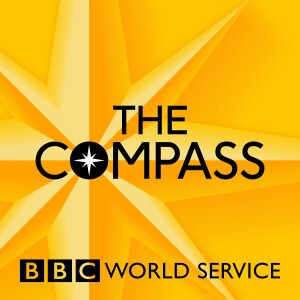
The Balkan route is closed, the fragile EU-Turkey deal is in effect, the Pope has been and gone, the traffickers are turning their attention to Italy & so is much of the media. But Greece continues to be the epicentre of a slow emergency. In a country in advanced economic meltdown more than 50,000 refugees & migrants, 'people on the move', are stuck. On the islands, the asylum processing "hotspots" funded by the EU are often grim affairs, like the one on Chios made out of repurposed shipping containers. Outside Thessaloniki, in a place where the railroad tracks run into grass, stands an abandoned toilet paper factory: no windows, no light, and tents huddled under the low roof. But, for a desperately stretched Greek government, this is better than the dark anarchy of the recently cleared camp at Idomeni, or the petrol station where children play in the still-working forecourt & the car wash has tents inside.
The deportations back to Turkey of some 8,500 people who came since the deal was done have started (as have the suicide attempts). For the more than 40,000 refugees and migrants who arrived before March 20th and now have no place to go, another long, gruelling story is beginning. The left-wing Syriza government is having to contemplate just how long these refugees will be stuck there. Minister of Migration Yannis Mouzalas knows that the much criticised EU-Turkey deal is the only thing preventing another wave of refugees reaching the shores of Greek islands that are already struggling to cope: "This is not Greece's crisis, this is Europe's crisis." In the second episode of Destination Europe, Maria Margaronis explores the hopes & fears of refugees, islanders & Greek politicians & asks whether Greece is becoming Europe's "warehouse of souls."
Producer: Mark Burman
(Image: A Syrian woman in Greece)
view more
More Episodes
The Great Unravelling: Trade and China
 2018-11-28
2018-11-28
 2018-11-28
2018-11-28
The Great Unravelling: Trade and Trump
 2018-11-21
2018-11-21
 2018-11-21
2018-11-21
The Great Unravelling: Self Determination
 2018-11-14
2018-11-14
 2018-11-14
2018-11-14
The Great Unravelling: War
 2018-11-07
2018-11-07
 2018-11-07
2018-11-07
The Great Unravelling: Human Rights
 2018-10-31
2018-10-31
 2018-10-31
2018-10-31
After the Crash: The Future
 2018-10-24
2018-10-24
 2018-10-24
2018-10-24
After the Crash: Rethinking Economics
 2018-10-17
2018-10-17
 2018-10-17
2018-10-17
After the Crash: Power Shift
 2018-10-10
2018-10-10
 2018-10-10
2018-10-10
After the Crash: Austerity and Consequences
 2018-10-03
2018-10-03
 2018-10-03
2018-10-03
After the Crash: Authority and Trust
 2018-09-26
2018-09-26
 2018-09-26
2018-09-26
Sounds of the forest
 2018-08-15
2018-08-15
 2018-08-15
2018-08-15
The sounds of the Lofoten Islands
 2018-08-08
2018-08-08
 2018-08-08
2018-08-08
The sounds of the Namib Desert
 2018-08-01
2018-08-01
 2018-08-01
2018-08-01
The sounds of the Maasai Mara
 2018-07-27
2018-07-27
 2018-07-27
2018-07-27
Antibiotics
 2018-07-18
2018-07-18
 2018-07-18
2018-07-18
Flesh is Weak, so Upgrade
 2018-07-18
2018-07-18
 2018-07-18
2018-07-18
Who Owns Your Data?
 2018-07-11
2018-07-11
 2018-07-11
2018-07-11
Work
 2018-07-04
2018-07-04
 2018-07-04
2018-07-04
Robots
 2018-06-21
2018-06-21
 2018-06-21
2018-06-21
Too Much English?
 2018-06-13
2018-06-13
 2018-06-13
2018-06-13
012345678910111213141516171819
Create your
podcast in
minutes
- Full-featured podcast site
- Unlimited storage and bandwidth
- Comprehensive podcast stats
- Distribute to Apple Podcasts, Spotify, and more
- Make money with your podcast
It is Free
- Privacy Policy
- Cookie Policy
- Terms of Use
- Consent Preferences
- Copyright © 2015-2024 Podbean.com



